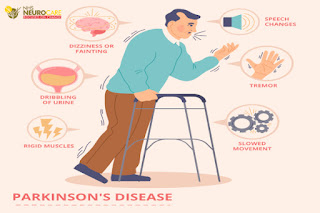5 Tips for Speedy Migraine Relief: Effective Headache Treatments
Are you tired of suffering from painful migraines or tension headaches? You're not alone. These conditions can be debilitating and interfere with daily life. Fortunately, there are effective headache treatments that can provide speedy relief. In this blog post, we'll share 5 tips recommended by NHS Neurocare for relieving migraines and tension headaches.
1) Try Over-the-Counter Pain Relievers
One of the most effective ways to relieve headache pain is to take over-the-counter pain relievers such as ibuprofen or acetaminophen. These medications can help reduce inflammation and ease pain. It's important to follow the recommended dosage and not exceed the maximum amount per day.
2) Apply Heat or Cold
Applying heat or cold to the affected area can also help relieve headache pain. For tension headaches, apply a warm compress to the neck or shoulders. For migraines, try a cold compress or ice pack on the forehead or temples.
3) Practice Relaxation Techniques
Stress can trigger migraines and tension headaches, so it's important to practice relaxation techniques such as deep breathing, meditation, or yoga. These activities can help reduce stress and tension in the body, which can help prevent headaches.
4) Stay Hydrated
Dehydration is a common trigger for headaches, so it's important to stay hydrated throughout the day. Drink plenty of water and avoid sugary or caffeinated drinks, which can dehydrate the body.
5) Consider Prescription Medications
If over-the-counter pain relievers aren't effective, your doctor may prescribe medications such as triptans or ergotamines. These medications are specifically designed to treat migraines and can provide fast and effective relief.
FAQs
Q: Can migraines be cured?
A: While there is no known cure for migraines, there are effective treatments that can help manage symptoms and prevent future episodes.
Q: How long do migraines typically last?
A: Migraines can last anywhere from a few hours to several days. The severity and duration of the headache can vary from person to person.
Q: What is the difference between a tension headache and a migraine?
A: Tension headaches are typically caused by muscle tension in the neck and shoulders, while migraines are caused by changes in brain activity.
Conclusion
Migraines and tension headaches can be painful and disruptive, but there are effective headache treatments that can provide speedy relief. Whether you try over-the-counter pain relievers, apply heat or cold, practice relaxation techniques, stay hydrated, or consider prescription medications, there are options available to help manage your symptoms. If you're experiencing chronic or severe headaches, be sure to consult with your doctor for a proper diagnosis and treatment plan.


Comments
Post a Comment